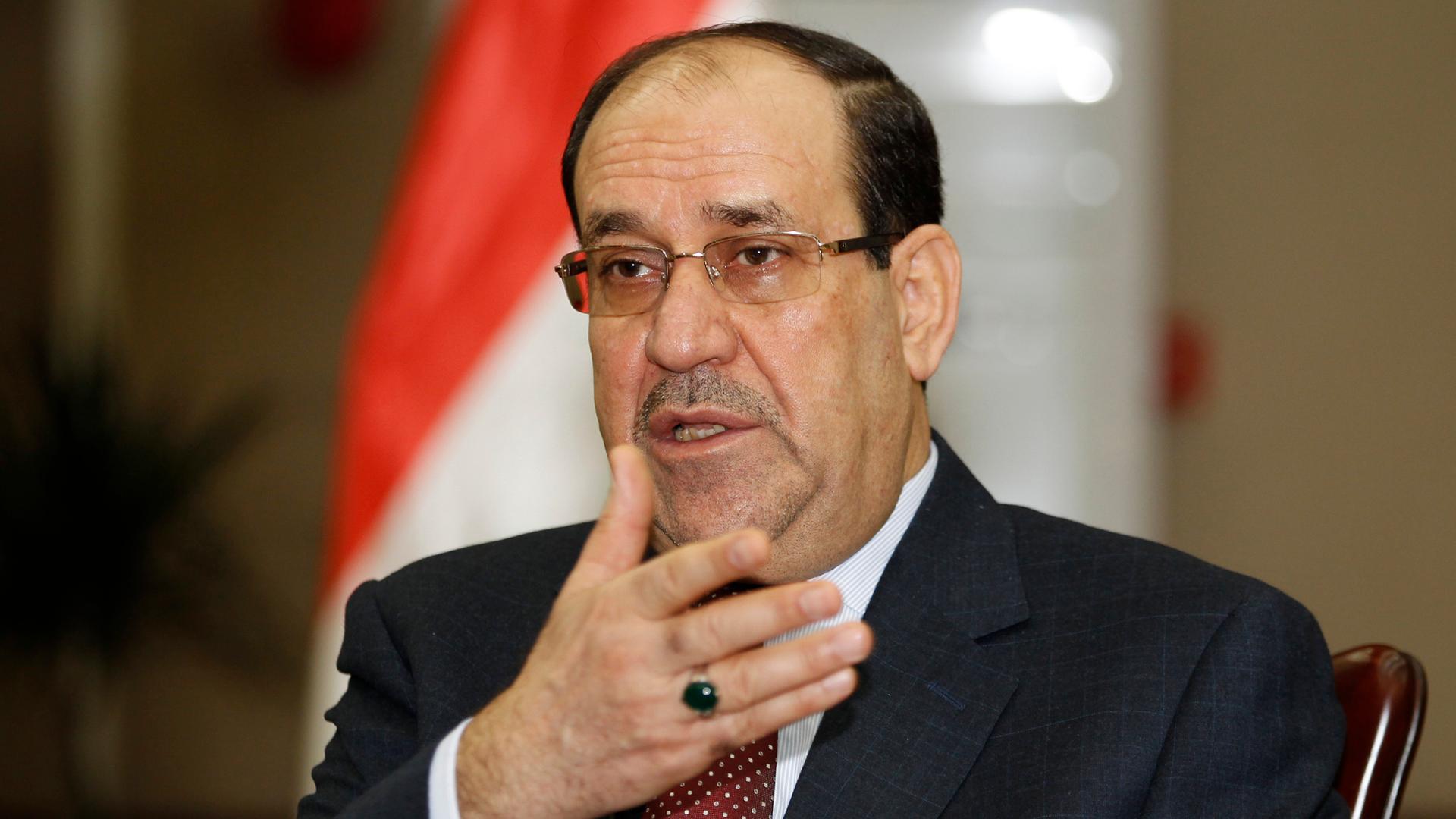How does Prime Minister Nuri al-Maliki’s political party view what’s happening in Iraq?
Iraq’s Prime Minister Nuri al-Maliki speaks during an interview with Reuters in Baghdad January 12, 2014.
Some blame the whole Iraq crisis on one man: Iraqi Prime Minister Nuri al-Maliki.
His critics accuse his Shiite-dominated government of shutting out other factions like Sunnis and Kurds. But Zuhair al-Nahar, a spokesperson for the prime minister's political party (Islamic al-Dawa), says al-Maliki has tried his best to include members of the various sects in his government.
"The Sunnis were represented in a large proportion. The leader of the parliament was a Sunni, the Deputy Prime Minister was a Sunni, the head of the army was a Sunni," he says.
Al-Nahar says Maliki managed to get a large number of votes in recent elections.
"Most of the votes came from the Shia provinces, but the Shia provinces are the biggest and have the largest population," he adds.
Al-Nahar says the Maliki government has plans to improve diversity in the government.
"No one wants to see a polarized Iraq, but that is the reality that we have now," he adds.
Regarding the current crisis in Iraq, al-Nahar says President Maliki has been insisting on an "Iraqi identity" rather than one that focuses on sect.
“Prime Minister Maliki has said time and time again ‘do not say Shia or Sunni, say Iraqi. The Iraqi nationality is what’s common between all: Kurds, Shia, Sunni.”
Al-Nahar says it will take a long process to end sectarian divide in Iraq and it cannot happen over night. To him, it was during Saddam Hussein's regime that polarization first took root.
As for President Barack Obama’s plan to send 300 "military advisers" to Iraq, Al-Nahar views it as “a step in the right direction." He says Obama's offer is welcomed, but he hopes that the help extends in the near future.
“We are hoping that once he sees the need for strikes against the centers of these terrorists, then that would be the next step," he explains.
For the time being, Al-Nahar says Maliki has no plans to leave his position as prime minister.
"This is something for the Iraqi politicians and the Iraqi people to decide," he says.
Some blame the whole Iraq crisis on one man: Iraqi Prime Minister Nuri al-Maliki.
His critics accuse his Shiite-dominated government of shutting out other factions like Sunnis and Kurds. But Zuhair al-Nahar, a spokesperson for the prime minister's political party (Islamic al-Dawa), says al-Maliki has tried his best to include members of the various sects in his government.
"The Sunnis were represented in a large proportion. The leader of the parliament was a Sunni, the Deputy Prime Minister was a Sunni, the head of the army was a Sunni," he says.
Al-Nahar says Maliki managed to get a large number of votes in recent elections.
"Most of the votes came from the Shia provinces, but the Shia provinces are the biggest and have the largest population," he adds.
Al-Nahar says the Maliki government has plans to improve diversity in the government.
"No one wants to see a polarized Iraq, but that is the reality that we have now," he adds.
Regarding the current crisis in Iraq, al-Nahar says President Maliki has been insisting on an "Iraqi identity" rather than one that focuses on sect.
“Prime Minister Maliki has said time and time again ‘do not say Shia or Sunni, say Iraqi. The Iraqi nationality is what’s common between all: Kurds, Shia, Sunni.”
Al-Nahar says it will take a long process to end sectarian divide in Iraq and it cannot happen over night. To him, it was during Saddam Hussein's regime that polarization first took root.
As for President Barack Obama’s plan to send 300 "military advisers" to Iraq, Al-Nahar views it as “a step in the right direction." He says Obama's offer is welcomed, but he hopes that the help extends in the near future.
“We are hoping that once he sees the need for strikes against the centers of these terrorists, then that would be the next step," he explains.
For the time being, Al-Nahar says Maliki has no plans to leave his position as prime minister.
"This is something for the Iraqi politicians and the Iraqi people to decide," he says.
